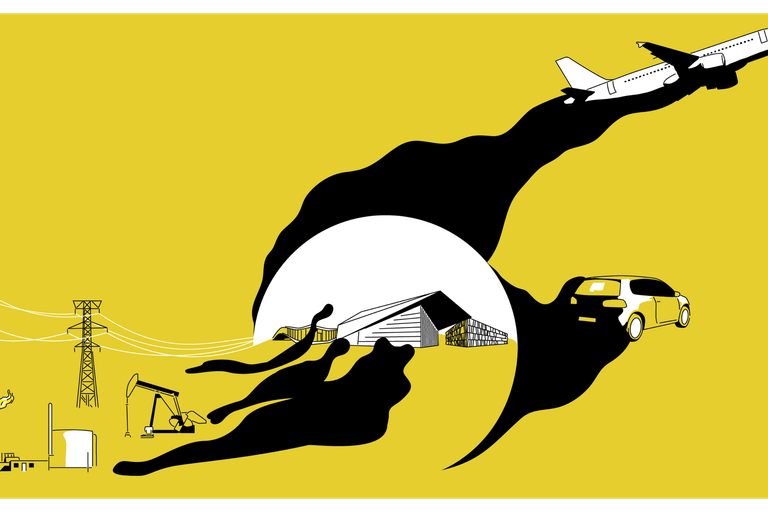Related topics

“Now that you have the support, you should be able to do more”
What is the best way to reduce greenhouse gas emissions caused by scientists travelling for business, particularly by plane? This was the issue to be discussed at the morning conference «Decarb science! But how?» ahead of the SCNAT Delegate Assembly on 24 May. The colossal scale of the problem lies in the fact that it requires a change in scientific culture. Ultimately, there are no straightforward answers: a creative, nuanced approach is what is needed.
Image: Hansjakob Fehr, 1kilo / Horizonte SNF
Decarb science! But how?
Boston, Copenhagen, Kyoto: science is global and scientists are jetting around the world. Like the rest of society, science should lower its carbon emissions to net zero emissions in the next 30-50 years, in order to halt global warming below +2 degrees Celsius. Scientists and scientific institutions need to act now. Yet, how is it best to achieve decarbonisation? Is global science with only very few flights possible? Are there any tradeoffs for the scientific competitiveness? Join us to explore this issue.
Image: Hansjakob Fehr, 1kilo / Horizonte SNF


